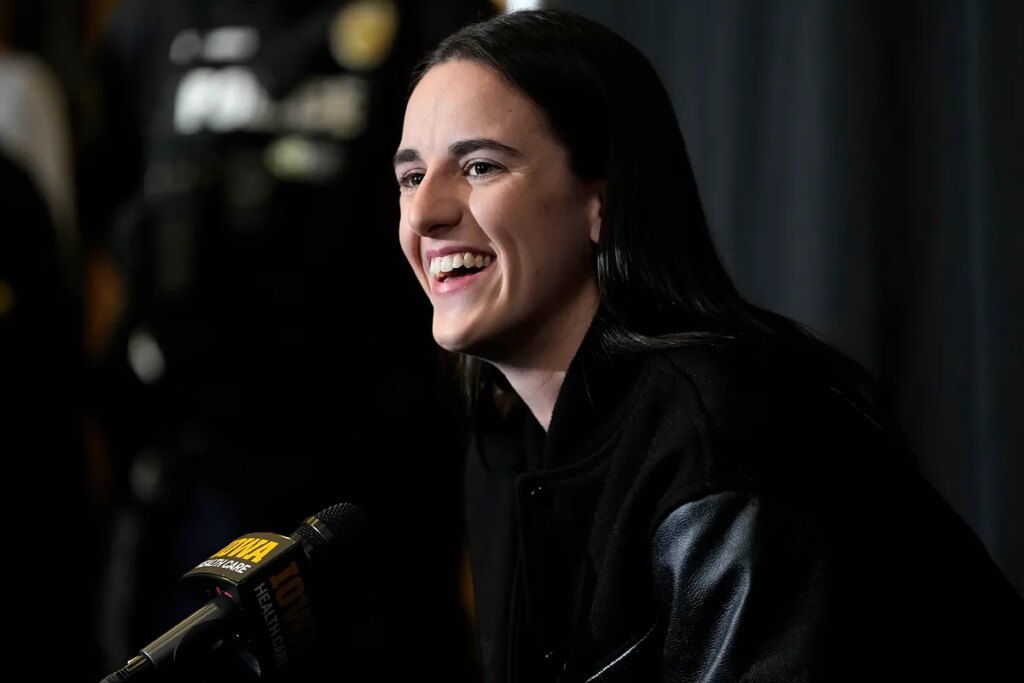When Caitlin Clark entered the WNBA as the most anticipated rookie in league history, she carried the weight of expectation, the spotlight of March Madness, and, as it turns out, the lure of one of the boldest offers ever extended to a women’s athlete.
Ice Cube‘s BIG3 league was prepared to pay her more money for one summer than she could make in a decade in the WNBA. Clark declined, and in doing so, she signaled that her future would be defined by legacy as much as by dollars.
The story, which first emerged in March 2024, began with a $5 million contract offer from BIG3. But this month, league insider and announcer David Gonzalez revealed on the TFU podcast that the number didn’t stop there.
“We offered Clark $15 million,” Gonzalez said. “It started at five, but the official final offer was fifteen for ten weeks. She must be making such good dough. I’m sure many offers came after-I’m sure we helped her make more money.”
For most players, a deal that size would be irresistible. For Clark, it wasn’t even a distraction.
At the time Cube’s proposal surfaced, Clark was in the middle of leading Iowa through the NCAA Tournament. She brushed off the speculation with her trademark poise.
“I found out about the BIG3 thing the same exact time you all did,” Clark told reporters before facing Colorado. “I honestly don’t talk about those things with really anybody.
“I have other people that deal with it, and they haven’t said a word to me about it. My main focus is on this team and helping us find a way to beat Colorado and hopefully win another one after that.”
She went on to carry the Hawkeyes past Colorado, exact revenge on LSU, and outduel UConn in the Final Four before falling to South Carolina in the national championship. By then, her path was set, the WNBA’s Indiana Fever selected her No. 1 overall in the 2024 draft.
BIG3 co-founder Jeff Kwatinetz has long insisted that Clark may never have been fully briefed on what was at stake.
Beyond the headline-grabbing salary, he claimed the league was willing to offer equity, merchandise revenue sharing, and a documentary deal with a seven-figure advance.
In his view, Clark’s agents and the NBA establishment saw the BIG3 as a threat and kept her from even considering the package.
“We have reason to believe these male agents and executives controlling the sport never even shared our trailblazing offer with Caitlin,” Kwatinetz said last year.
“From our perspective, these representatives don’t seem to work for an individual client like Caitlin. They seem to work for the NBA mob.”
Whether or not Clark was kept in the dark about the full terms, she never wavered publicly from her commitment to the WNBA.
Why Clark didn’t need $15 million
The raw math makes the decision easier to understand. In her rookie year, Clark’s Fever salary was only $76,535, but endorsement deals quickly pushed her annual income above $11 million.
By April, Nike handed her an eight-year, $28 million deal, the richest in women’s basketball history. Add in sponsorships with State Farm, Gatorade, Wilson, Hy-Vee, Xfinity and others, and Clark was earning more off the court than most NBA role players.
That reality softened the blow of walking away from BIG3 money. Clark didn’t need a 10-week cash windfall. She needed a league, a platform, and the chance to become the face of women’s basketball.
WNBA commissioner Cathy Engelbert has often pointed out that Clark’s value goes far beyond her salary line. H
er presence boosted attendance, drove television ratings, and even fueled a more lucrative media rights landscape for the league. Clark herself has spoken about wanting to push women’s basketball forward, not just chase the highest bidder.
Her decision to bypass BIG3 was about more than contracts. It was a rejection of a short-term payday in favor of a long-term legacy.
She chose to step into the same arena as legends like Lisa Leslie, Sue Bird, and Diana Taurasi, and then redefine what the next generation of WNBA stardom could look like.
Legacy over a quick check
In the end, Caitlin Clark left $15 million on the table. But she also gained something far more valuable, the chance to cement herself as the defining player of her era, in the league that most needed her.
For Ice Cube and the BIG3, the missed opportunity underscored just how much Clark’s influence had grown. For Clark, it was confirmation that money isn’t always the most important factor in shaping a career.
Sometimes, the bigger gamble is choosing the harder road and betting that your impact will outlast even the boldest offers.
Read the full article here

